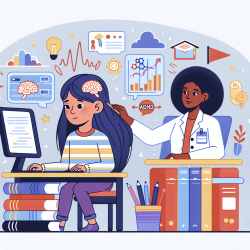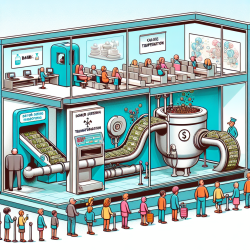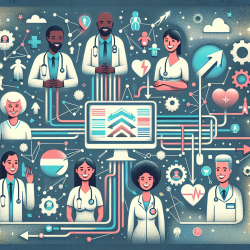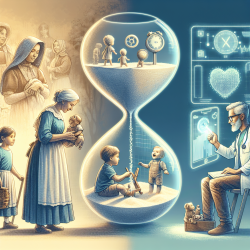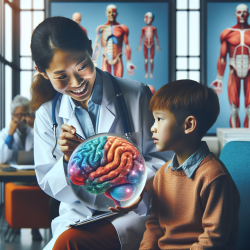Introduction
The COVID-19 pandemic has transformed healthcare delivery, highlighting the need for innovative educational approaches. A recent study, "An Experimental Education Project for Consultations of Older Adults during the Pandemic and Healthcare Lockdown," explores a pilot project that combines interprofessional education (IPE) with telehealth consultations. This initiative involved medical and pharmacy students collaborating to provide care to older adults, offering valuable insights for practitioners aiming to enhance their skills.
Project Overview
The project was developed to address the challenges faced by healthcare education during the pandemic. It involved remote consultations conducted by medical and pharmacy students under mentor supervision. The primary goal was to provide practical learning opportunities while delivering care to older adults with limited healthcare access. The initiative used the Internet-Telephone Consultation Services (ITCS) at Poznań University of Medical Sciences, offering a platform for students to engage in interprofessional medication management.
Key Findings
- Student Development: Students reported enhanced self-confidence and understanding of patient care skills. The project improved their ability to conduct literature reviews and develop communication and telehealth skills.
- Interprofessional Collaboration: The collaboration between medical and pharmacy students was seamless, fostering a holistic approach to patient care. Students gained a deeper appreciation for each other's roles and responsibilities.
- Patient Satisfaction: Feedback from older adults was overwhelmingly positive, with 92.68% expressing satisfaction with the care provided. Patients valued the opportunity to revise their medication lists and receive personalized recommendations.
Implications for Practitioners
This project underscores the importance of interprofessional education and telehealth in modern healthcare. Practitioners can enhance their skills by adopting similar collaborative approaches, which not only improve patient outcomes but also enrich the learning experience for students. The project's success suggests that such initiatives could be integrated into post-pandemic healthcare education to provide more accessible care for older adults.
Encouraging Further Research
While the project demonstrated significant benefits, further research is needed to explore its long-term impact and scalability. Practitioners are encouraged to investigate the potential of interprofessional telehealth education in their settings, considering factors such as technology accessibility and patient engagement.
Conclusion
The experimental education project highlights the potential of interprofessional telehealth education to improve healthcare delivery and education. By fostering collaboration between medical and pharmacy students, the initiative provided valuable insights into patient care and professional development. Practitioners can leverage these findings to enhance their skills and contribute to the evolution of healthcare education.
To read the original research paper, please follow this link: An Experimental Education Project for Consultations of Older Adults during the Pandemic and Healthcare Lockdown.



